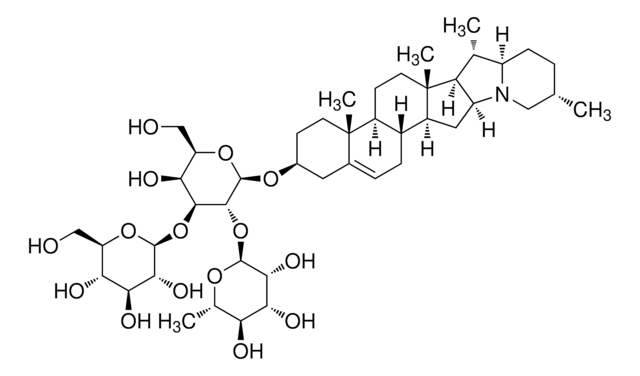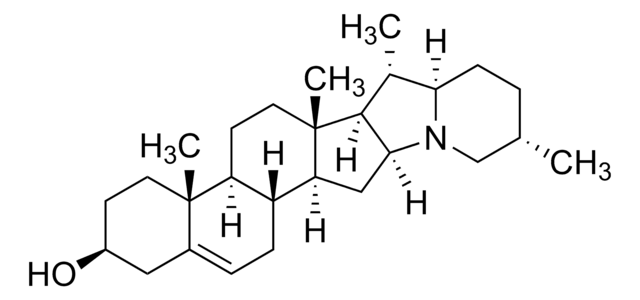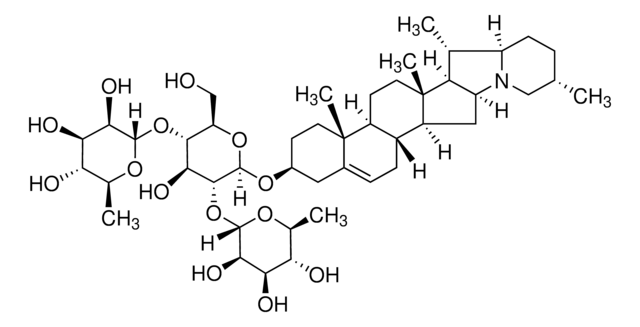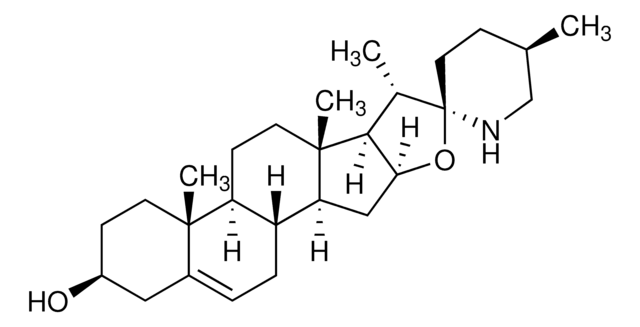13264
Solanidine
≥97.0% (HPLC)
Sinónimos:
(3β)-Solanid-5-en-3-ol, Solatubine
About This Item
Productos recomendados
assay
≥97.0% (HPLC)
form
powder or crystals
technique(s)
HPLC: suitable
storage temp.
room temp
SMILES string
C[C@H]1CC[C@@H]2[C@@H](C)[C@H]3[C@H](C[C@H]4[C@@H]5CC=C6C[C@@H](O)CC[C@]6(C)[C@H]5CC[C@]34C)N2C1
InChI
1S/C27H43NO/c1-16-5-8-23-17(2)25-24(28(23)15-16)14-22-20-7-6-18-13-19(29)9-11-26(18,3)21(20)10-12-27(22,25)4/h6,16-17,19-25,29H,5,7-15H2,1-4H3/t16-,17+,19-,20+,21-,22-,23+,24-,25-,26-,27-/m0/s1
InChI key
JVKYZPBMZPJNAJ-OQFNDJACSA-N
¿Está buscando productos similares? Visita Guía de comparación de productos
Biochem/physiol Actions
Packaging
signalword
Warning
hcodes
Hazard Classifications
Acute Tox. 4 Oral - Aquatic Chronic 4 - Repr. 2
Storage Class
11 - Combustible Solids
wgk_germany
WGK 3
Certificados de análisis (COA)
Busque Certificados de análisis (COA) introduciendo el número de lote del producto. Los números de lote se encuentran en la etiqueta del producto después de las palabras «Lot» o «Batch»
¿Ya tiene este producto?
Encuentre la documentación para los productos que ha comprado recientemente en la Biblioteca de documentos.
Nuestro equipo de científicos tiene experiencia en todas las áreas de investigación: Ciencias de la vida, Ciencia de los materiales, Síntesis química, Cromatografía, Analítica y muchas otras.
Póngase en contacto con el Servicio técnico









